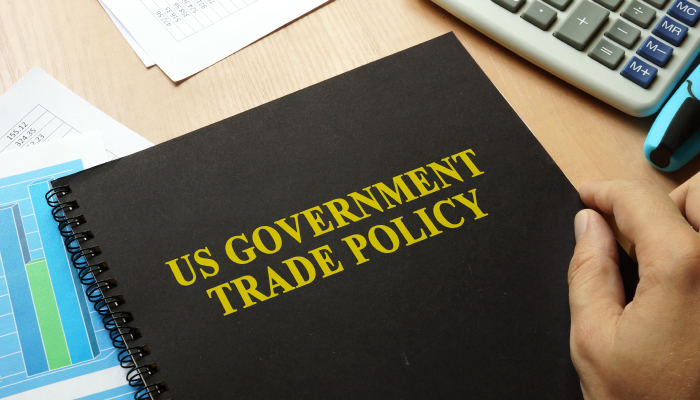The Trump Administration has proposed a slew of changes to the nation’s trade policies, including those involving NAFTA, and adoption of any one of them could have major ramifications for importers in the United States, warns Robin W. Grover, a trade lawyer with 35 years of experience.
Grover runs through Trump’s major proposals in a conference for AudioSolutionz, “Trump Trade Initiatives and Their Impact on Your Company’s Trade Profile,” and has a warning for CFOs, corporate officers, supply chain managers, corporate accountants and customs compliance directors: Address these trade initiatives now so that you are not surprised by new problems in your import compliance program.
With America Out of the Trans-Pacific Partnership, What’s Next?
Shortly after taking office, the Trump administration declared its basic philosophy regarding trade. Those tenets included defending national sovereignty over trade policy, strictly enforcing U.S. trade laws, using leverage to open foreign markets and negotiating new, better trade deals.
While rewriting trade policies was a major (and popular) focus of the Trump campaign, not a whole lot has happened yet, which means lots of change could be coming. So far:
- America has withdrawn from the Trans-Pacific Partnership (though the remaining 11 members have stuck with the plan).
- Trump has tried to rewrite the North America Free Trade Agreement (NAFTA) and the U.S.-Korean Free Trade Agreement.
- Trump has yet to formally declare China a “currency manipulator.”
“Altogether, the administration’s highest-profile attempts to curb imports to date have resulted in unintended consequences that arguably hurt the United States,” wrote polling aggregator FiveThirtyEight. “Decades of globalization won’t be easily undone.”
Killing NAFTA: Good for Trade?
One of the main trade policy changes that might happen is a major modification to NAFTA—or its demise.
Trump’s November 2017 synopsis of policy goals and negotiating objectives for NAFTA runs 17 pages and speaks in broad terms: “Retain flexibility for U.S. non-conforming measures, including U.S. non-conforming measures for maritime and long-haul trucking services” and “Maintain and implement rules that prohibit anticompetitive business conduct, protect consumers from fraudulent and deceptive commercial acts and practices, and ensure that those rules are transparent.”
Trump has said that the U.S. will “end up probably terminating NAFTA at some point.” Analysts agree—Trump’s demands could be so great that Canada and Mexico might simply walk away from it, noted a columnist in U.S News & World Report.
Trump has said that NAFTA allows Mexico to steal jobs from the United States, but analyses of pulling out of the deal offer compelling some reasons to stay in, from keeping tariffs low to not shaking up supply chains.
“Companies have spent decades building up complex supply chains that snake across North America’s borders to take advantage of differing costs and resources,” noted the New York Times. “American automakers are especially reliant on parts imported from overseas—but other industries, including agriculture, energy and retail would also be affected. These trading relationships help keep the price of the final product competitive with other major global manufacturing hubs in Asia and Europe.”
Trump’s Goal of Saving Jobs Questioned
Other negative effects include more expensive goods and unhappy neighbors.
“Trump should also brace himself for a spike in immigration from Mexico, which has been in steady decline,” reported journalism site Quartz. “Killing NAFTA would hurt the Mexican economy, which is heavily dependent on exports to the US.”
And contrary to Trump’s claims that killing NAFTA would save American jobs, consultants ImpactECON said the United States could lose 256,000 jobs. “Overall, the results show that the US’s reversal of NAFTA leads to a decline in real GDP, trade and investment in the US, Canada and Mexico, with most of the losses resulting from Canada and Mexico’s reciprocation,” the report said.





